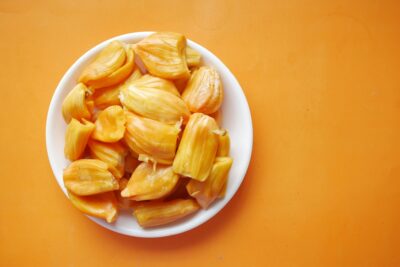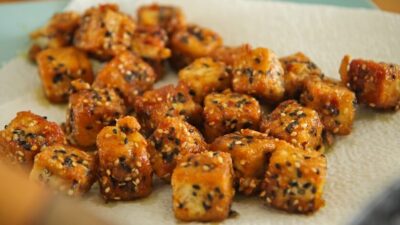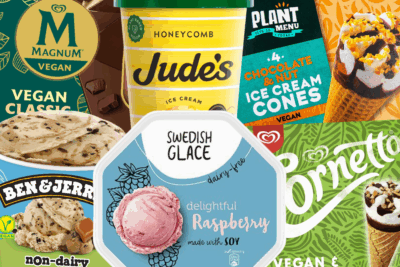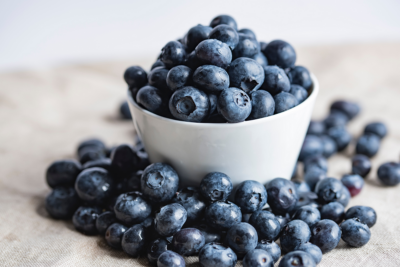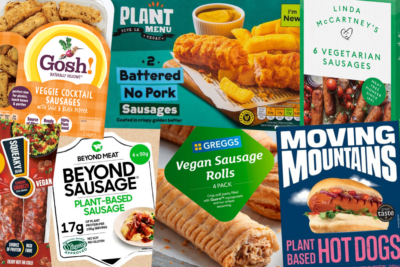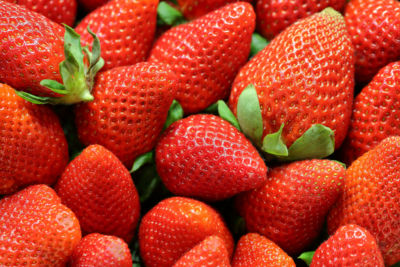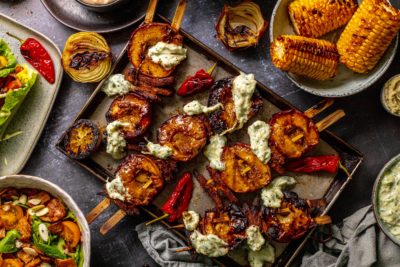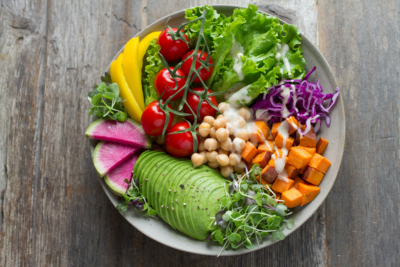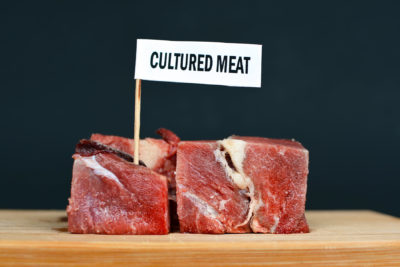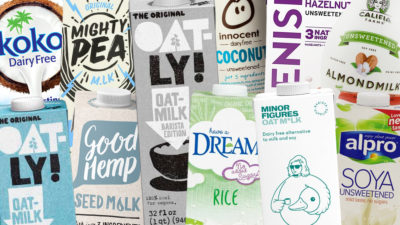Is dairy an essential source of calcium? Not quite. Here’s how to get calcium without dairy.
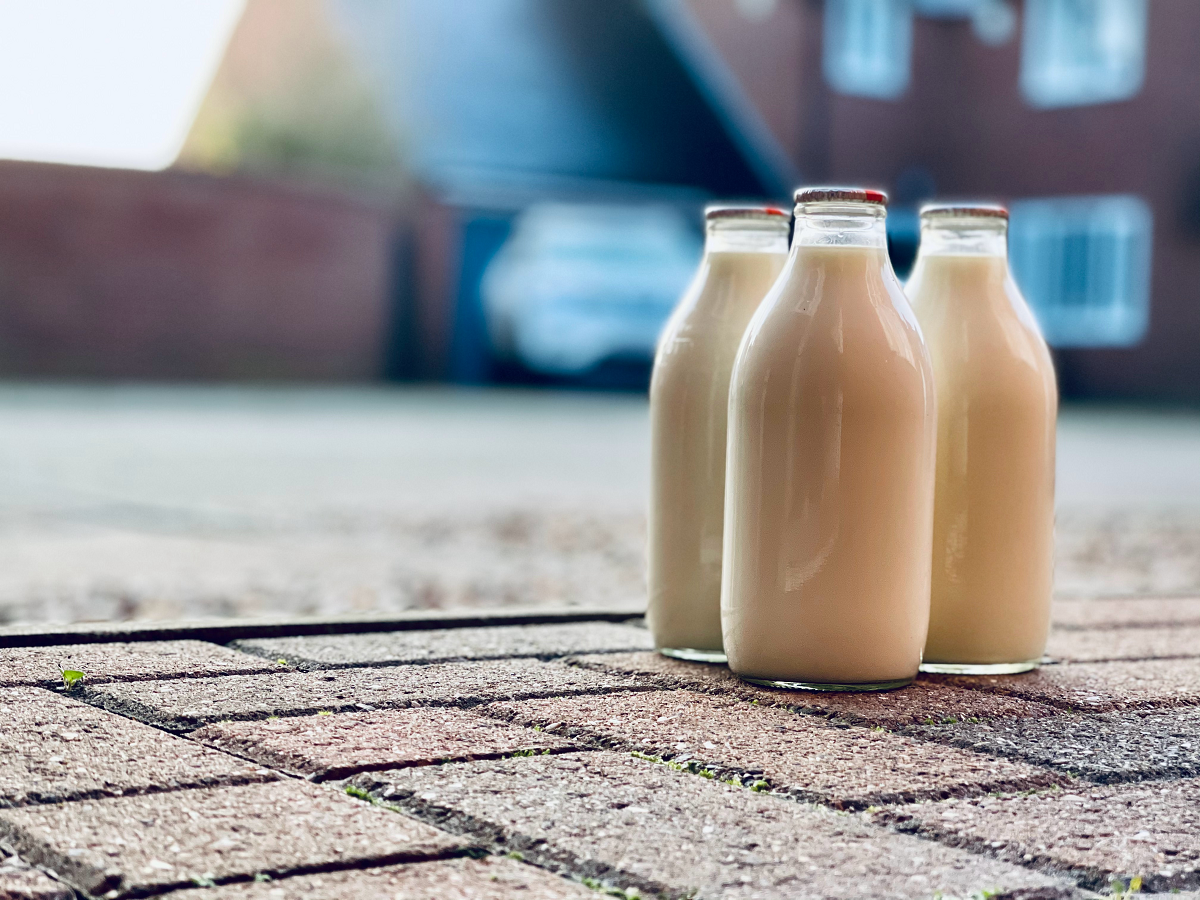
You must have heard it a thousand times – “you’re vegan, be careful to get enough calcium!”
Many of us are taught that dairy is an essential source of calcium, but this isn’t true. Bone health is about more than just calcium, and calcium is about more than just dairy!
Non-Dairy Sources of Calcium
The NHS recommends around 700mg of calcium a day, but we don’t have to get it from dairy.
Eating a plant-based diet can provide sufficient calcium, but we do need to be mindful to eat foods that are good sources of it. They include:
- Calcium-set tofu (not all tofu is made this way so choose varieties that are. 100g of tofu gives you 400mg calcium, or just over half of your daily requirement)
- Fortified plant milks and yoghurts (one serving will provide you with about 115mg or one-sixth of your daily need)
- Bread (in the UK and elsewhere, most flour is fortified with calcium and other nutrients. There is about 50mg per slice of bread.)
- Beans (they contain around 70mg of calcium per serving)
- Spinach (one cup of cooked spinach yields 245mg calcium)
- Kale (50g of cooked kale yields about 70mg calcium)
- Other leafy green vegetables such as mustard greens, pak choi, broccoli and chard yield similar quantities to kale
Other foods that add a smaller but useful amount include sesame seeds, tahini, chia seeds, blackcurrants, black treacle or molasses, Brazil nuts, sultanas and figs.
Getting your calcium from plants and dairy alternatives is not only possible, it also offers significant advantages over dairy when it comes to overall bone health.
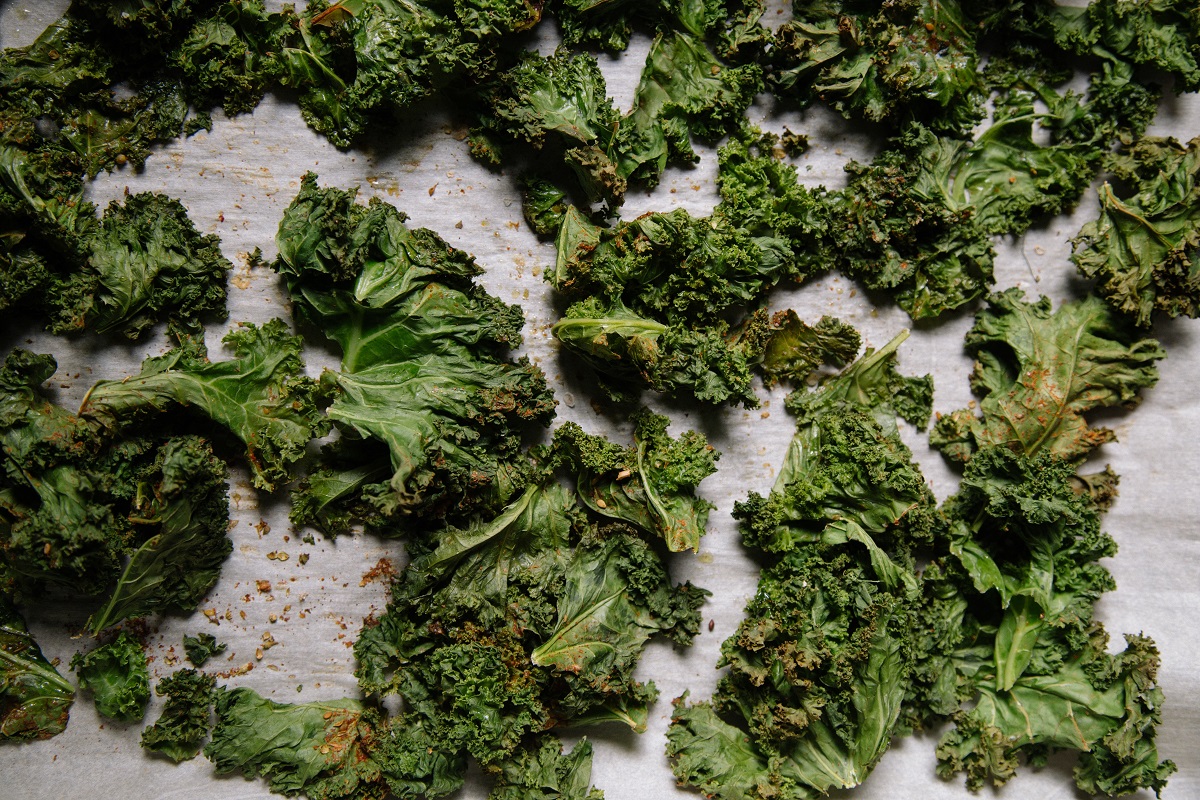
It’s Not Just Calcium
Calcium is essential for bone health and it can do its job a whole lot better if we also have a good supply of two other vitamins: vitamin D and vitamin K.
Vitamin A also plays a role in this discussion.
Vitamin A
There are two types of vitamin A. The first is preformed vitamin A which is found in animal products, including dairy.
The second type is provitamin A, which is found in plants, with the most common type being the carotenoid, beta-carotene.
Vitamin D
Regardless of diet, vitamin D deficiency is all too common across the population. Many foods are already fortified, including breakfast cereals, plant milks and yoghurts.
For vegans, UV-grown mushrooms are probably the best source and can provide a substantial amount of our daily requirements. However, all foods, vegan or not, are generally a poor source of vitamin D.
Public Health England recommends that everyone in the UK takes a vitamin D supplement in autumn and winter of 10mcg (400 IU) a day. For those who don’t spend much time outside or don’t eat foods containing vitamin D, a supplement is sensible all year round.
Vitamin D2 is always suitable for vegans, but vitamin D3 can be derived from animals, so ensure you choose a vegan brand of D3.
Vitamin K
Good bone health also requires vitamin K as it helps to keep calcium in the bones and away from the blood vessels.
Cow’s milk – like other animal products – contains very little vitamin K, but it can be found plentifully in green leafy vegetables like spinach, kale and broccoli, as well as in spring onions, kiwi fruit, grains and vegetable oils.
What Shouldn’t We Eat?
Alcohol and caffeine can reduce absorption and retention of calcium, so avoid too much of these.
Bone Health Is More Than Diet
There are two more things to consider. To strengthen our bones, we need to do regular weight-bearing exercises such as running, dancing or lifting weights. (Swimming and cycling are great for overall health but do not meaningfully contribute to bone health.)
And finally, smoking is a risk factor for osteoporosis and bone fractures and should be avoided.
Looking for more information about the disadvantages of dairy? Check out our blog about cows and the dairy industry.
This page was reviewed by Claire Lynch, RD and nutritionist Rohini Bajekal from Plant-Based Health Professionals in November 2023. For more information about bone health, see this fact sheet.

